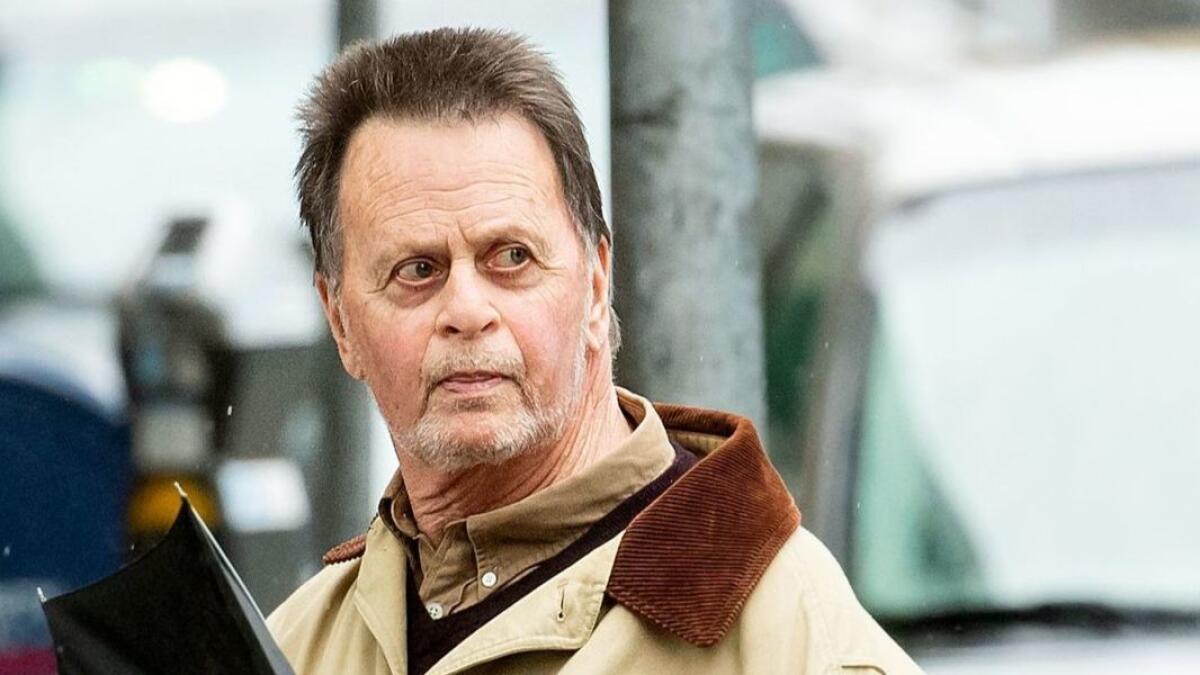Jury awards $80 million to man who said Roundup weedkiller caused his cancer

A U.S. jury on Wednesday awarded $80 million in damages to a California man who blamed Roundup weedkiller for his cancer, in a case that his attorneys say could help determine the fate of hundreds of similar lawsuits.
The six-person jury in San Francisco returned its verdict in favor of Edwin Hardeman, 70, who said he used Roundup products to treat poison oak, overgrowth and weeds on his Sonoma County property for years. The same jury found last week that Roundup was a substantial factor in Hardeman’s non-Hodgkin’s lymphoma.
Agribusiness giant Monsanto says studies have established that the active ingredient in its widely used weedkiller, glyphosate, is safe. The company said it will appeal.
“We are disappointed with the jury’s decision, but this verdict does not change the weight of over four decades of extensive science and the conclusions of regulators worldwide that support the safety of our glyphosate-based herbicides and that they are not carcinogenic,” Bayer, which acquired Monsanto last year, said in a statement.
Analysts have put the price of settling lawsuits over Roundup filed by more than 11,200 people in the United States at more than $5 billion. Thomas G. Rohback, a trial lawyer at Axinn in New York, said Bayer may be pursuing a “long game” based on a strategy of continuing to fight in hopes of finding some plaintiffs it can beat.
A different jury in August awarded $289 million to another man, but a judge later slashed the award to $78 million. Monsanto has appealed.
Hardeman’s trial may be more significant than that case. U.S. District Judge Vince Chhabria is overseeing hundreds of Roundup lawsuits and has deemed Hardeman’s case and two others “bellwether trials.”
The outcome of such cases can help attorneys decide whether to keep fighting similar lawsuits or settle them. Legal experts said verdicts in favor of Hardeman and the other bellwether plaintiffs would give their attorneys a strong bargaining position in any settlement talks for the remaining cases before Chhabria.
Many government regulators have rejected a link between cancer and glyphosate. Monsanto has vehemently denied such a connection, saying hundreds of studies have established that the chemical is safe.
Monsanto developed glyphosate in the 1970s, and the weedkiller is now sold in more than 160 countries and widely used in the United States.
The herbicide came under increasing scrutiny after the France-based International Agency for Research on Cancer, which is part of the World Health Organization, classified it as a “probable human carcinogen” in 2015.
Lawsuits against Monsanto followed, and thousands are now pending nationwide.
Monsanto has attacked the international research agency’s opinion, calling it an outlier. The U.S. Environmental Protection Agency says glyphosate is safe for people when used in accordance with label directions.
The award in the Hardeman case is the third-largest product liability jury award in the United States so far this year, according to data compiled by Bloomberg. The largest such verdict, for $151.8 million, was issued by an Alabama jury last month against Ford Motor Co. over an Explorer rollover accident.
A third trial over Roundup is underway in Oakland, brought by Alva and Alberta Pilliod, a couple in their 70s who invoked a California law that gives scheduling preference to people who are ill. A school groundskeeper who won the first trial against Bayer in August relied on the same law.
Bayer won’t have the advantage in Oakland that it had in San Francisco federal court. Hardeman’s trial was split into two parts, a format that legal experts said gave the company its best chance of evening the score after it lost the first Roundup trial last summer.
Instead, the Oakland trial will permit lawyers to present jurors at the outset with their narrative about Monsanto’s secret campaign to manipulate public opinion and bury evidence of Roundup’s cancer risks.
Jurors in Hardeman’s case first sat through weeks of scientific testimony to decide whether Roundup was a “substantial factor” in causing his illness before they heard any evidence that Monsanto ghostwrote influential studies and improperly leaned on regulators. Bayer countered that scientific studies showed the herbicide is safe and argued to the jury that damning emails were taken out of context.
The jury found that there’s a defect in Roundup, that Bayer failed to warn of the product’s risks and that the company was negligent.
Hardeman sought more than $19 million in damages, including compensation for hospital bills as well as pain and suffering.
His lawyers said the verdict sends a message to Monsanto that it needs to change the way it does business.
“It speaks volumes that not one Monsanto employee, past or present, came live to trial to defend Roundup’s safety or Monsanto’s actions,” Aimee Wagstaff and Jennifer Moore said in a statement.
Bloomberg was used in compiling this report.
More to Read
Inside the business of entertainment
The Wide Shot brings you news, analysis and insights on everything from streaming wars to production — and what it all means for the future.
You may occasionally receive promotional content from the Los Angeles Times.










